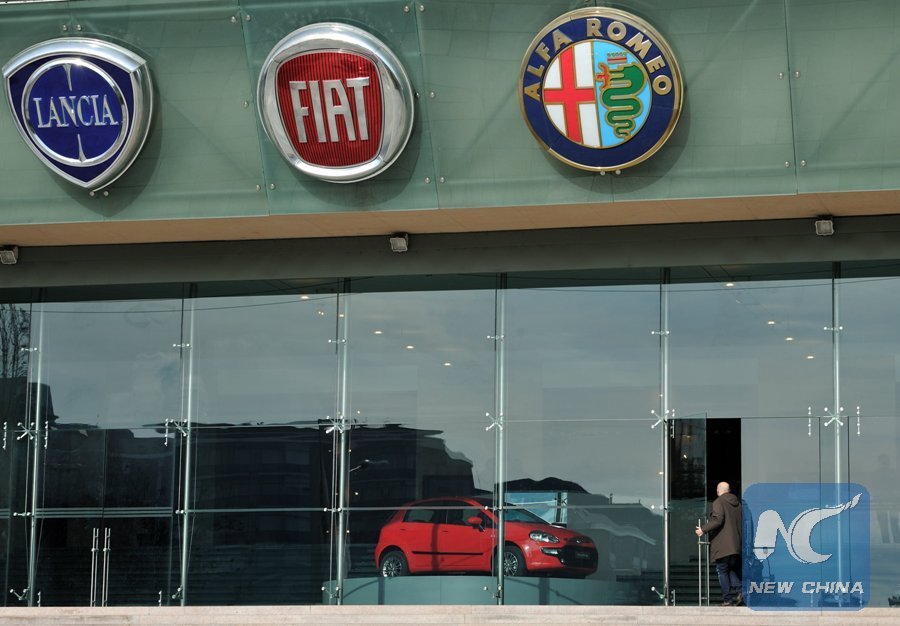
File photo taken on March 14, 2011 shows the headquarters of Italian automaker Fiat in Turin, northern Italy. Fiat announced on April 21 to exercise a 1.3 billion US dollars equity call option for an additional 16 percent stake in the Chrysler Group in the second quarter of 2011, raising its controlling stake to 46 percent. (Xinhua/Wang Qingqin)
WASHINGTON, Jan. 12 (Xinhua) -- The U.S. Environmental Protection Agency (EPA) on Thursday accused Fiat Chrysler of violating the country's Clean Air Act by installing and failing to disclose emissions-cheating software in roughly 104,000 vehicles.
Affected models include the light-duty model year 2014, 2015 and 2016 Jeep Grand Cherokees and Dodge Ram 1500 trucks with 3.0 liter diesel engines sold in the United States, the EPA said, adding that the undisclosed software results in increased emissions of nitrogen oxides (NOx) from the vehicles.
"Failing to disclose software that affects emissions in a vehicle's engine is a serious violation of the law, which can result in harmful pollution in the air we breathe," Cynthia Giles, Assistant Administrator for EPA's Office of Enforcement and Compliance Assurance, said in a statement.
"We continue to investigate the nature and impact of these devices. All automakers must play by the same rules, and we will continue to hold companies accountable that gain an unfair and illegal competitive advantage."
The accusation followed a similar investigation into Volkswagen for using software to cheat on emissions tests.
The EPA said Fiat Chrysler may be liable for civil penalties and injunctive relief for the alleged violations.
The agency said it's investigating whether the undisclosed software, which it called "auxiliary emission control devices," constitute "defeat devices," which are illegal.
In September 2015, the EPA instituted an expanded testing program to screen for defeat devices on light duty vehicles.
This testing revealed that the Fiat Chrysle vehicle models in question produce increased NOx emissions under conditions that would be encountered in normal operation and use.
As part of the investigation, the EPA said it has found at least eight undisclosed pieces of software that can alter how a vehicle emits air pollution.
Fiat Chrysler said in a statement that it's "disappointed" by the EPA's decision to issue the notice of violation and pledged to work with the incoming administration on this case.
The company said it "has spent months providing voluminous information in response to requests from EPA and other governmental authorities and has sought to explain its emissions control technology to EPA representatives."
In addition, it has proposed "a number of actions" to address EPA's concerns, including developing extensive software changes to its emissions control strategies "that could be implemented in these vehicles immediately to further improve emissions performance."
The company claimed that its emissions control systems "meet all applicable regulatory requirements," "are properly justified and thus are not 'defeat devices' under applicable regulations."

